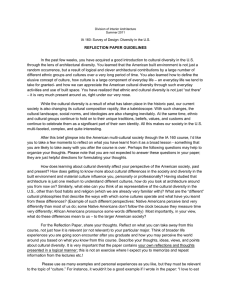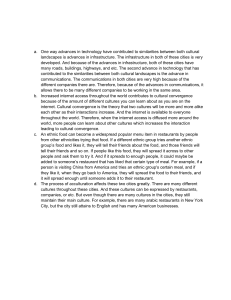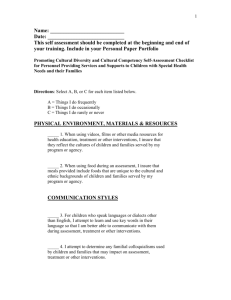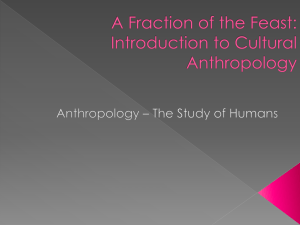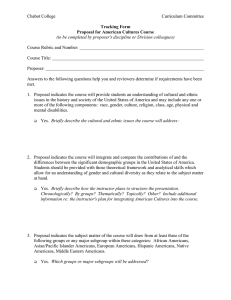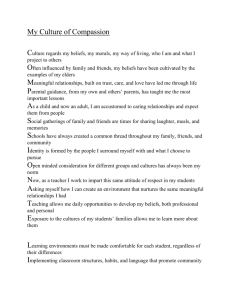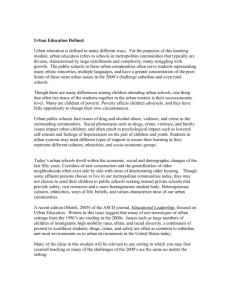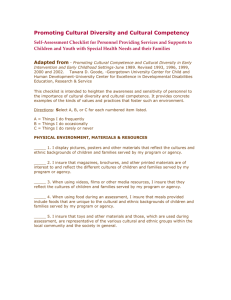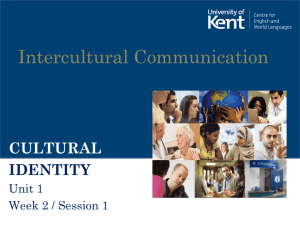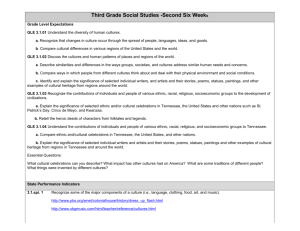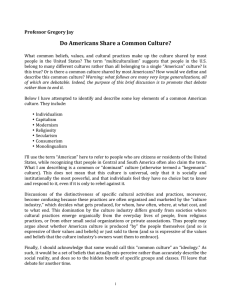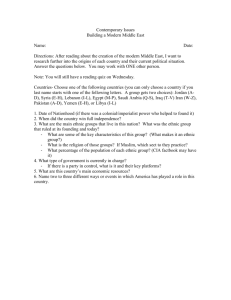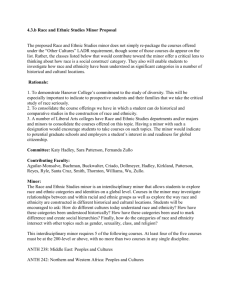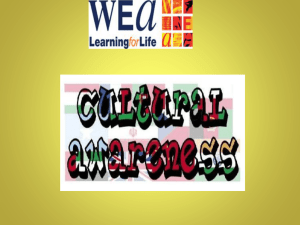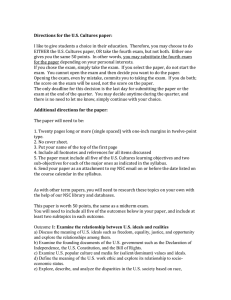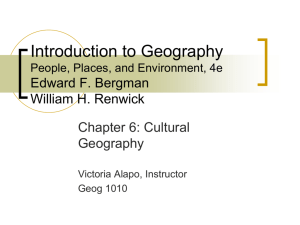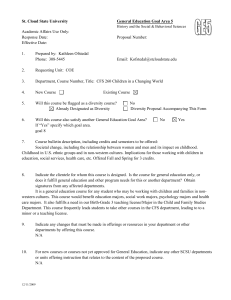8 Traits Culture
advertisement
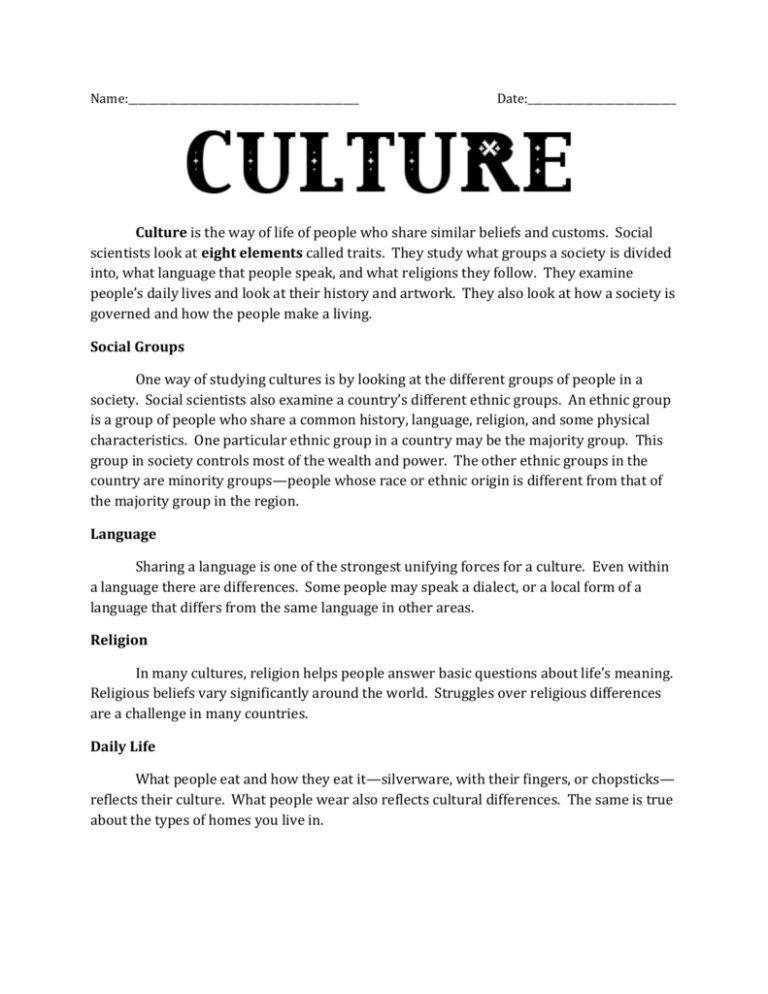
Name:_____________________________________________ Date:_____________________________ Culture is the way of life of people who share similar beliefs and customs. Social scientists look at eight elements called traits. They study what groups a society is divided into, what language that people speak, and what religions they follow. They examine people’s daily lives and look at their history and artwork. They also look at how a society is governed and how the people make a living. Social Groups One way of studying cultures is by looking at the different groups of people in a society. Social scientists also examine a country’s different ethnic groups. An ethnic group is a group of people who share a common history, language, religion, and some physical characteristics. One particular ethnic group in a country may be the majority group. This group in society controls most of the wealth and power. The other ethnic groups in the country are minority groups—people whose race or ethnic origin is different from that of the majority group in the region. Language Sharing a language is one of the strongest unifying forces for a culture. Even within a language there are differences. Some people may speak a dialect, or a local form of a language that differs from the same language in other areas. Religion In many cultures, religion helps people answer basic questions about life’s meaning. Religious beliefs vary significantly around the world. Struggles over religious differences are a challenge in many countries. Daily Life What people eat and how they eat it—silverware, with their fingers, or chopsticks— reflects their culture. What people wear also reflects cultural differences. The same is true about the types of homes you live in. History History shapes how we view the world. People remember the successes of the past. A group also remembers the dark periods of history, when they met with disaster or defeat. These experiences, too, influence how a group see’s itself. Arts People express their culture through the arts. Art is not just paintings and sculptures, but also architecture, dance, music, theater, and literature. By viewing the arts of culture, you can gain insight into what the people of that culture think is beautiful and important. Government People need rules in order to live together without conflict. Rules or laws are created by governments. Countries may have limited or unlimited governments. In a limited government, all citizens – including the countries leaders – must obey the laws of the land written in a constitution or statement of rights. A democracy is a form of limited government where powers rest with the people of the nation. In unlimited governments, rulers have powers that are not limited by laws. One type of unlimited government is a dictatorship, where a dictator usually takes power by force. To stay in power, most dictators rely on the police and the military. Dictators are not responsible to the people, and they limit freedom of speech, assembly, and the press. In a monarchy, kings or queens are born into a ruling family and inherit their power to absolute rule. Economy Culture includes economic activities, or how the people in a society earn a living. Some people farm or manufacture products, others provide services. Cultural Change Cultures do not remain the same. Humans constantly invent new ideas, technologies, and create new solutions to problems. Trade, the movement of people, and war can spread these changes to other cultures. The process of spreading new knowledge and skills to other cultures is called cultural diffusion.
